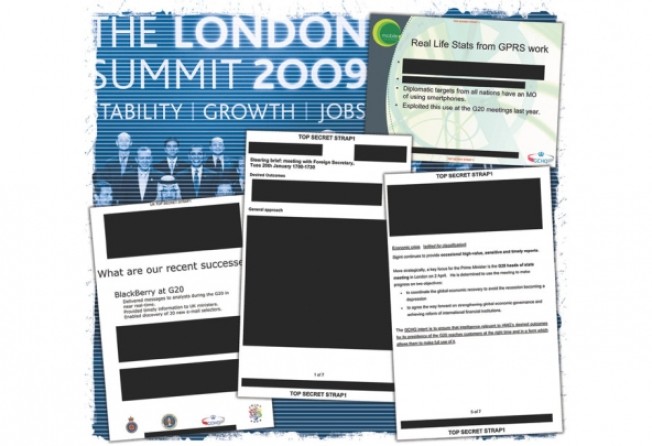
British hospitality comes with bugs included
Turks, Russia’s Medvedev among diplomats targeted at international summits, says report

The British eavesdropping agency GCHQ repeatedly hacked into foreign diplomats' phones ande-mails when Britain hosted international conferences, even going so far as to set up a bugged internet cafe in an effort to get an edge in high-stakes negotiations.

The Guardian cited more than half a dozen internal government documents, which it says involved, among other things, hacking into the South African foreign ministry's computer network, targeting the Turkish delegation at the 2009 G20 summit in London and using the vast spying base at northern England's Menwith Hill to monitor the satellite communications of Russian leader Dmitry Medvedev. Medvedev arrived in London on April 1, 2009, and the NSA intercepted communications from his delegation the same day, according a NSA paper.
"It's a scandal! The US and British special services tapped Medvedev's phone at the 2009 G-20 summit. The US denies it, but we can't trust them," Alexei Pushkov, the Kremlin-connected chief of the foreign affairs committee in the lower house of Russian parliament, wrote on his Twitter feed yesterday.
The diplomatic fallout from this could be considerable
In Ankara, Turkey summoned Britain's charge d'affaires to demand an explanation. South African diplomats demanded London "investigate fully".
"The diplomatic fallout from this could be considerable," said British academic Richard Aldrich, whose book GCHQ charts the agency's history.
Speaking at the G8 summit that opened yesterday, Prime Minister David Cameron declined to address the issue. "We never comment on security or intelligence issues and I am not about to start now," he said.
An unnamed Chinese diplomat who has taken part in many international conferences, said such surveillance was not uncommon. Any nation, including China, had security measures to protect their secrets in their internal communications and at international meetings. "We should presume that this type of espionage goes on at international conferences," he said.
Snowden, hiding out in Hong Kong as the FBI builds a case against him, has said he will fight any US attempt to extradite him.
The Guardian's source material - whose authenticity could not immediately be determined - appears to be a mixed bag. The newspaper describes one as "a PowerPoint slide", another as "a briefing paper" and others simply as "documents". Some of the leaked material was posted to its website with heavy redactions. A spokesman for the newspaper said the redactions were made at the newspaper's initiative, but declined to elaborate.
It was not completely clear how Snowden would have had access to the British intelligence documents, although in one article The Guardian mentions that source material was drawn from a top-secret internal network shared by GCHQ and the NSA.
Aldrich said he would not be surprised if the GCHQ material came from a shared network accessed by Snowden, explaining the NSA and GCHQ collaborated so closely that in some areas they effectively operated as one.
One document cited by The Guardian - but not posted to its website - appeared to boast of GCHQ's tapping into smartphones. The Guardian quoted the document as saying "capabilities against BlackBerry provided advance copies of G20 briefings to ministers". It went on to say "diplomatic targets from all nations have an MO (a habit) of using smartphones", adding that spies "exploited this use at the G20 meetings last year".
Another document cited but not posted concerned GCHQ's use of a customised internet cafe "able to extract key logging info, providing creds for delegates, meaning we have sustained intelligence options against them even after conference has finished". The reference to key logging suggests the computers had software to spy on key strokes, steal passwords and eavesdrop on e-mails.
Additional reporting by Cary Huang